The exploding digital age has ensured that a laptop is no longer an option for a college student. Furthermore, rising fees and expenses have made both parents and students agree that selecting the right laptop is an important and challenging decision. All a student needs is a durable and optimized laptop that can provide service in the long haul of college life. A life that incorporates academic and extracurricular activities like remote learning, writing term papers, coding, designing, data entry, taking notes, editing slides, video conferencing, social networking, posting photos, listening to music, streaming movies, gaming, and much more.
First of all, it is wise to check whether your college or the field of study demands specific system requirements. You may face stringent hardware specifications to prevent incompatibility with the software you are going to use. For example, subjects that revolve around language may require more memory as you have to open many tabs for meticulous research. In contrast, subjects like animation and engineering that deal with design/creation may require higher processing power or a high-quality display.
However, not every college student needs a laptop with colossal specs. If you wander through the digital aisles, you’ll get an intimidating number of models and designs along with varying price tags. Add to that the budgetary restraints of college life that force you to make sure the price tags don’t exceed what you’ve saved up for.
So, the aim is to find a device that meets your tight budget but is optimized enough to handle basic academic projects and won’t jeopardize you at crucial instances by slowing down or crashing. Coming from our long expertise, we are going to weigh the pros and cons of every necessary hardware configuration, including processor, RAM, storage, screen size, battery, and operating system, which is a daunting task for most people. Yeah! We’ll make your search as smooth as possible.
Processor
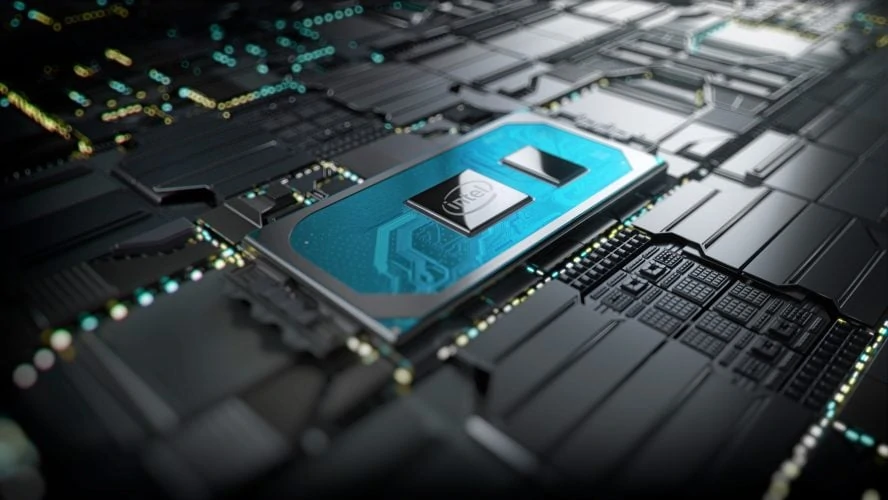
A processor (CPU) is a small silicon chip responsible for handling all system instructions, running applications, and providing binary data output. Its speed is also known as “clock speed” and is measured in GHz. Each processor of the new generation is usually faster than the previous generation. Most modern processors contain multiple ‘cores,’ which are individual processors that work together, especially for multitasking. Dual-core processors incorporate two cores, while quad-core processors include four, and the list goes on. The two prominent processor manufacturing companies are AMD (AMD Ryzen 3, AMD Ryzen 5, etc. ) and Intel (Core i3, Core i5, etc.).
AMD and Intel have been competing in the mobile processor market for quite a while now. While Intel has had the historic lead for performance and manufacturer support, AMD has now emerged with the lead than its Zen 2 4000-based chips. AMD chips offer almost twice the cores than Intel counterparts while being more efficient due to the 7nm manufacturing process. Sadly, few laptop manufactures have adopted AMD, mainly due to their recent foray into the market, so getting a budget AMD laptop easily seems to be a long shot. However, if you’re able to find a Ryzen 3 4300U laptop for sale, we would absolutely recommend that you go with it as it even outperforms a 10th Gen Intel i7 processor in CPU performance. However, the 3000-series AMD Ryzen processors are not that powerful, and it’s better to go with a 10th Gen Intel i3 instead.
The Intel Core i3 and Intel Core i5 are both popular processors installed in the budget laptops available today. Generally, the higher the number of cores, the “better” the processor is. For students who are not into heavy work and are looking to buy a laptop for browsing sites, YouTube streaming, researching, word-processing, printing, casual gaming, etc., the Core i3 is more than adequate. But if you are into heavy multitasking, video editing, animation, graphic works, 3Dmodeling, etc., then you’ll have to switch for Core i5. Most i3 processors have dual-core while i5 processors contain 4-6 cores, but the difference can only be perceived when running highly memory-intensive programs.
On top of that, there’s ample overlap between their subseries because of the micro-architecture updates. For example, an i3 10th generation processor can equate or even outperform an i5 8th generation processor. If you are not a heavy-duty app user and are on a budget, buying a high-end Core i3-based laptop is better than a low-end Core i5-based laptop. The same is true for an AMD Ryzen Processor, with the 3000 series Ryzen 5 being equivalent to a 4000-series Ryzen 3.
If you find a 4000-series Ryzen laptop available in your budget, we highly recommend you consider it since it offers a 10th gen i7 level of CPU performance at the price of an i3. Even GPU performance will be on par with a 10th Gen Intel i5, so a laptop with the processor is a steal. If your budget only allows for an Intel i3, however, we recommend you browse through the questions below and see if it will be enough for college.
If you will use your laptop mainly for browsing sites, YouTube streaming, researching, word-processing, printing, video chatting, casual gaming, college-level coding, etc., Core i3 is more than adequate. The combo of 8-GB RAM and i3 would be fantastic. An Intel i3 generally has two cores. A while ago, CPUs with a single-core lagged out if you tried to open two heavy-duty programs like a game and a video player, so a dual-core processor gives you the privilege of multitasking without running into many hiccups. Regarding value for money and meeting basic college requirements, the latest-gen Core i3 is worth it if you’re getting a terrific deal on a laptop with a processor. However, if you happen to notice a Ryzen 3 4300U laptop for the same price, then it’s a way better value than the i3.
Well, this type of question can’t have a definite answer. It must be answered conditionally because there are many types of engineering and diverse applications. The kind of programming and the packages/framework that is going to be used must be considered. An i3 would be sufficient if you are developing non-graphic intensive programs and don’t have high-end multimedia software. However, under a tight budget, the latest generations of i3 and optimized RAM, SSD, GPU, etc., are going to be enough for most stuff. Anything less than that will most probably not work out well.
As an engineering student, you’ll have to run programs like Android studio, Dreamweaver, AutoCAD, Photoshop, SolidWorks, Oracle, Matlab, VMware, Creo, etc. If you find the i3 lacking in any of the programs mentioned, we recommend going with a more powerful Ryzen processor like AMD, like the Ryzen 3 4300U or Ryzen 5 4500U. Both support a majority of programs used in a college and can be found at or slightly above the budget you have set.
This depends on several factors. The requirements of every programmer are different. For example, a game developer may require higher graphical performance than a web developer. If you are in web-development stuck with PHP/CSS/HTML/JS, then the i3 line can shine easily as it doesn’t require high specs. If you are in the field of app/software development stuck with C, C++, Swift, etc., then you’ll require at least four cores. In this case, we would recommend the Ryzen 3 4300U as it provides four cores at the same price. Game developers also need to juggle between the design tool and the game. So, to run such software, they need a dedicated graphics solution. The 10th-generation option arrives with new onboard graphics and four cores that can outstrip their older counterparts.
When gaming, processors don’t play that significant role as graphics cards and RAM until and unless you want to push Frames Per Second (FPS) very high. Most laptops have an integrated GPU (graphics processing unit), which means you need to upgrade the processor to upgrade the graphics. Many laptops have the processor soldered into the motherboard, and it isn’t feasible to change the processor/motherboard due to the cost and technicalities involved. Sometimes, depending on the laptop model, you can add an external GPU, but it isn’t feasible due to the cost and technicalities.
Compared to processors with more cores, the Intel Core i3 may seem too weak, but it is noteworthy that all games aren’t optimized to use multiple cores. Less demanding games can perform well within two cores. It must also be noted that the latest generations of i3 processors having quad-cores are equivalent to entry-level i5 processors. You can expect more than a reliable gaming performance. However, unlike a casual pastime gamer, if you are a hardcore gamer rooted in high-end games, it would be better to go for an optimized processor.
Yes, you can install Windows 10 with an i3 processor. Any computer with an Intel i3 dual-core processor should be able to run Windows 10 without issues. It supports 64-bit Windows as well.
RAM (Memory)
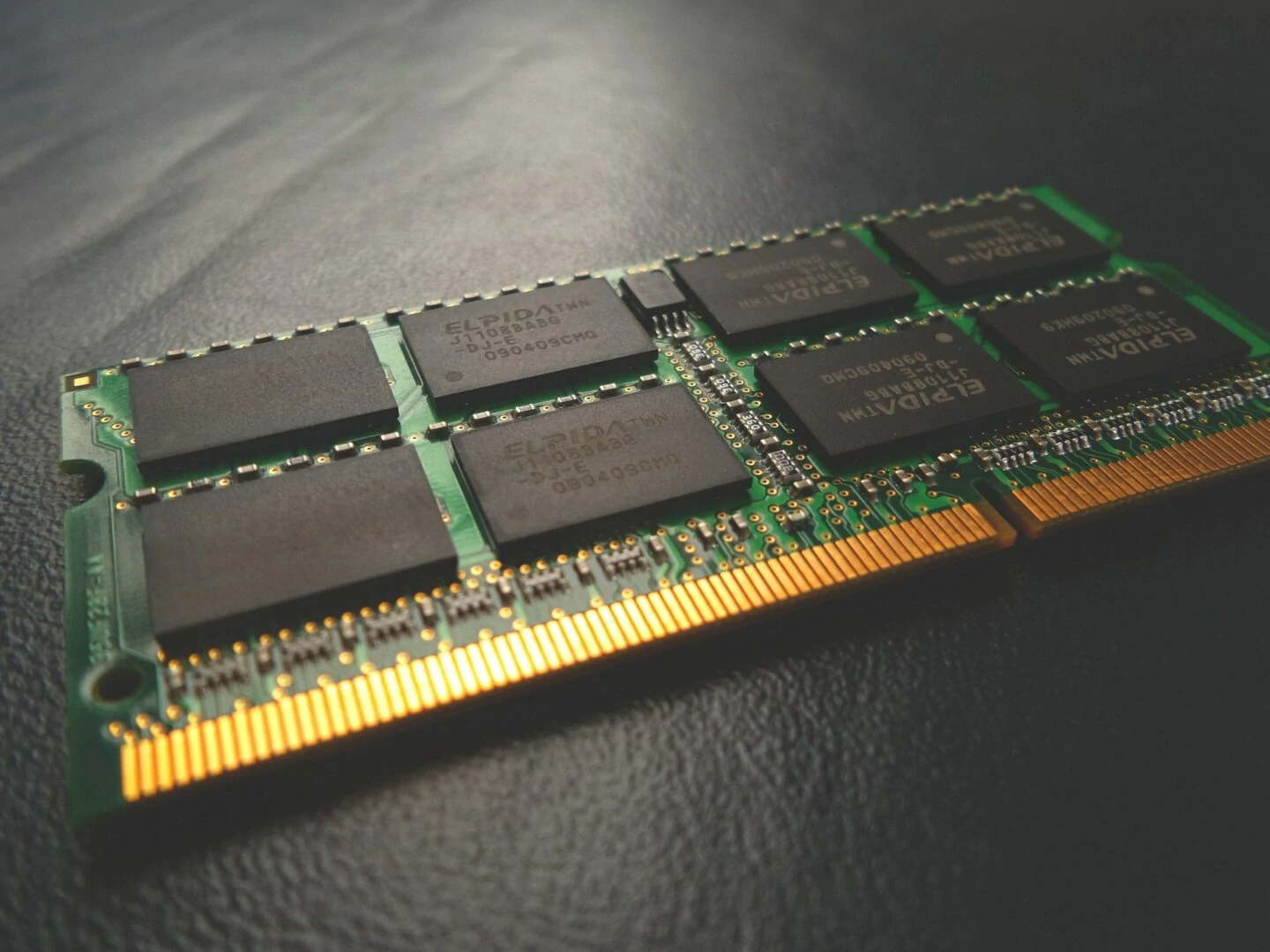
You will undoubtedly hear this term flying all around in the marketplace as you hunt for your budget laptop. RAM (Random Access Memory) is a volatile memory responsible for vital yet straightforward tasks like loading applications and running them. It is measured in gigabytes (GB), and the more it is, the better, especially while you’re multitasking or using graphically-intensive applications. Although some older systems use DDR3, the commonly used and recommended, RAM-type is DDR4.
Is 4GB of RAM enough for a computer? Is 8 GB RAM enough for college students?
In the past, 4GB of RAM was the standard for computers, but now most laptops, even budget ones, are equipped with at least 8GB of RAM. If you are a light user who handles word processing, browsing, and streaming, 4GB of RAM could do the job, but as time progresses, programs will require more memory as they become increasingly complex. Modern websites are so content-heavy that they tend to take up a considerable chunk of RAM.
Gaming PCs and higher-end laptops are now even opting for a minimum of 16GB to support the latest games and heavy applications. However, for students, we believe that 8GB of DDR4 RAM is undoubtedly a sweet spot. Plus, it is wiser to know the software’s memory requirements and applications you are likely to use.
Is 8GB RAM good for gaming?
When it comes to gaming, it is not only the RAM but the proper combination of a graphics card and processor that plays a significant role. It also depends upon the type of game you play, and it’s minimum system requirements. Most gamers play at 1080p and 60-100 FPS, and 8GB of RAM should be enough for such settings. Although 16GB RAM is growing increasingly popular, 8GB of RAM should be sufficient if you pair it with appropriate specs to avoid bottlenecking.
Is 8GB RAM enough for programming?
Yes, 8GB of RAM is enough for programming and development concerned with coding. Many high-level languages can be compiled without any interference. DDR4 RAM is recommended as it operates at a higher frequency. However, game developers or programmers who also work with graphics may need to go higher than 8GB as development times will be too high to do anything productive. It’s better to opt for a laptop supporting expandable memory up to a maximum of 32GB. You can deck it out later with an upgrade kit when you need the extra RAM.
Storage
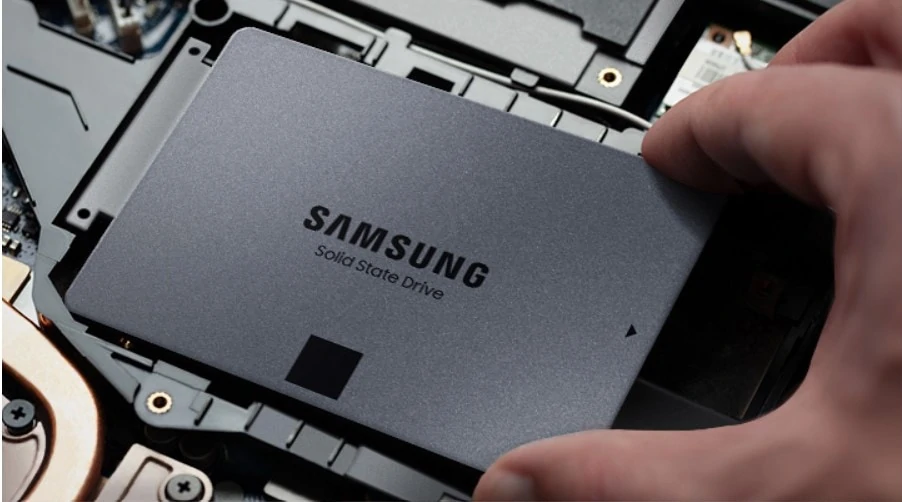
Image Credits: Samsung
It is a section or component within the computer responsible for storing and accessing data like pictures, videos, documents, etc., on a long-term basis. You can save your data either on a hard disk drive (HDD) or solid-state drive (SDD). Additionally, one can use cloud storage providers like Google Drive and Dropbox to store their files online. Doing so saves you from the burden of using hard drives by reducing the storage space used up by your files. Many microSD and USB drives can also serve as temporary storage, thereby relieving your laptop’s main storage device.
Which is better for a student’s laptop: SSD vs. HDD vs. SSHD?
The conventional hard disk drive (HDD) is currently being phased out by Solid-state drives (SSD). SSDs are much faster than HDDs as they have no moving mechanical parts, thereby boosting the laptop’s speed and performance by a considerable amount. A solid-state drive also consumes less power than a hard-disk drive, yielding the benefit of longer battery life.
SSD’s typically come in two configurations, NVMe and SAT. NVMe’s are significantly faster and take up very little space. They usually fit into an M.2 slot, the size of a stick of gum in modern laptops, so lookout for a slot on your laptop if you want to upgrade to one in the future. However, they are costly and come with either 128GB or 256GB in budget laptops. They are best used for programs that require fast storage like a photo or video editing application.
On the other hand, SATA SSD’s are considerably faster than HDDs but have a similar form factor, but are still lightweight and portable. We recommend going for a SATA SSD as your primary storage device instead of an HDD. Preferably get a laptop with a smaller NVMe SSD for your OS and apps, along with an SSD to store your files. Ensure that the laptop your buying comes with a 2.5″ HDD slot and add the SSD there. Remove an existing HDD’s and you can either sell them or use them as an external HDD with a special enclosure like this.
Is 128 GB SSD enough for a college laptop? Is 256GB enough for students? Do I need 128GB or 256GB?
128 GB is adequate for system programs, essential applications, updates, and a decent amount of data. However, users who have a hefty amount of data, such as huge media collections or demanding games, should house the files in a mass storage device like an external HDD or internal SATA SSD. We recommend storing academic files in the cloud to free up extra space on your laptop for important applications.
How much storage do I need for gaming? How much storage do I need for gaming? Is 500GB enough for gaming?
It depends on what type of games and how many games you’re planning to install. A modern AAA title can be around 25-50 GB in size. Some can even go up to 100GB or more. On average, likely, just three games can fully occupy the 100 GB storage. Also, your Operating system, along with other collections and programs, will share the same storage. If you are an average casual gamer with no video editing and graphics-related business, then 500 GB of storage is enough. If you are a heavy gamer, then you must go at least a total of 1TB.
Do I need SSD for games?
The main advantage of SSD is that it loads any heavy programs very fast. It will undoubtedly help to load the games much quicker than HDD. However, it does not have any significant impact on the FPS and the actual game performance. Strictly speaking, it is not necessary.
Battery
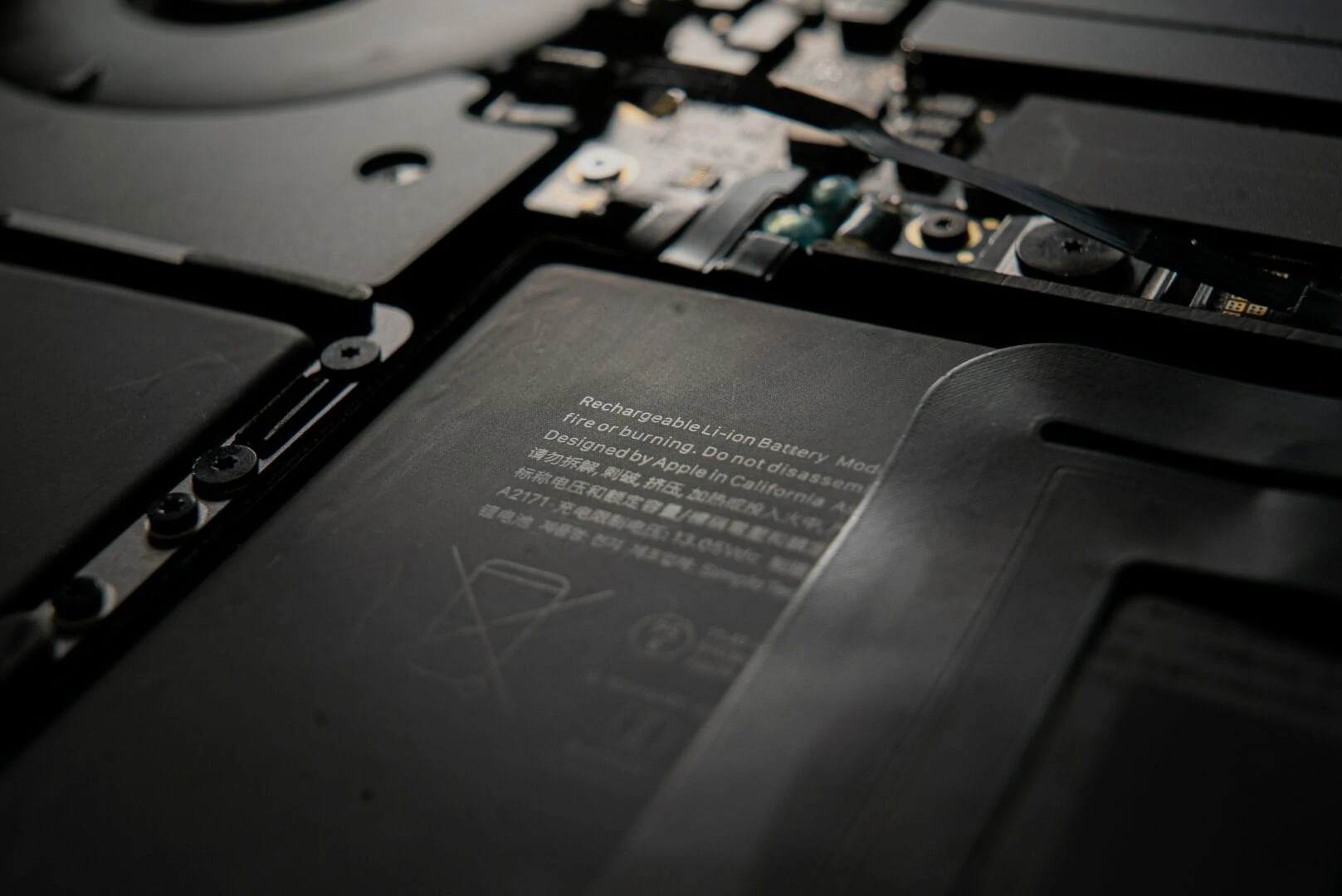
If mobility and heavy use are your significant issues, then a quick recharge time and long battery life are essential. Generally, heavier laptops with bigger screen sizes come with less battery life. Typically the average mainstream laptops offer 5 to 7 hours of battery life, while mini-portable models may stretch up to 10 hours.
Which types of batteries are used in laptops?
The three types of batteries commonly used in laptops are Nickel Cadmium (NiCad), Nickel Metal Hydride (NiMH), and Lithium-Ion (Li-ion). They have different characteristics because each battery incorporates different chemistry for producing a charge.
Nickel Cadmium and Nickel Metal Hydride batteries are old and nearly outdated because they are heavy and more or less suffer from the “memory effect.” The memory effect is the property that makes them forget their capacity for full recharging if they are discharged repeatedly the same amount and then recharged without overcharge before they have fully drained. Lithium-Ion batteries are the standard batteries. They are lightweight and powerful.
How to choose the best battery for a laptop? Is the battery with higher Wh (Watt-hours) better?
A watt-hour measurement of the amount of energy held in a battery can power a one-watt device for one hour. A 100 Watt-hour battery can give 100 watts for 1 hour. A rechargeable battery is rated by voltage and milli-ampere/hour (mAh) and rarely in Wh. It is printed on the battery case.
Screen Size and Resolution

Its screen-size directly influences the weight and price of the laptop. The range usually starts from 11.6 inches and goes up to 17.3 inches. The serious 17-inch workhorse with ultra-high resolutions around 4K is usually best for video editors, content creators, and gamers. Regarding students, for the right balance between price, performance, and portability, they can select the screen size anywhere between 13 to 15 inches. Generally targeted for mainstream consumers, their weight is around four pounds, and they have at least full-HD specification (1080p – 1920 x 1080 lines of resolution)
How is the screen size measured?
Screen size is measured in inches, diagonally from corner to corner. The measurement only accounts only for the actual screen, not the enclosure.
Is a higher resolution better for your eyes?
Higher resolutions mean that there are more pixels per inch (PPI). It creates a high-quality, sharp, and crisp image. Such kinds of pictures and text cause less eye fatigue and strain. It is beneficial to buy the laptop with Full-HD specification (1080p – 1920 x 1080 lines of resolution).
Operating System

Operating System is an essential software that acts as an interface between user and hardware and controls and coordinates the computer’s overall operations. All the operating systems have their range of pros and cons. Among the long array of operating systems such as Windows, macOS, Linux, Unix, Chrome OS, etc., the two central frontline laptop operating systems are Windows and macOS. They account for nearly 90% of the market, while windows alone account for almost 80%.
Which is the best operating system for a laptop?
First of all, your hardware choice can determine the Operating System that can be installed. Windows comes preloaded on most new PCs, while macOS only runs on Apple’s line of computers. Less expensive stuff has never been a part of Apple’s service, although they are compact, sturdy, sleek, optimized, and security-oriented. The cost of upgrading its various components and accessories will make consumers remember the elephant in the room. The top-rated Apple laptops ”MacBook Pro” and ”MacBook Air” cost $720-$1,500. So, any budget-friendly laptop will inevitably pair up with Windows, which has many advantages as well.
Which is the best Operating system for college students? Which is the best for students among “Windows vs. macOS vs. Chrome OS”?
The three major Operating Systems suitable for the academic arena are Windows, macOS, and Chrome OS.
Though macOS is a clean, sleek, secured, and GUI-based Operating system, it is developed exclusively by Apple for the Macintosh line of computers whose cost flies over the bar. It has its own App Store that contains thousands of apps for educational purposes. Engineers, graphic designers, and other students who need more power opt for macOS. However, Macs won’t always run programs prepared on other platforms. Windows can’t read the macOS file system. The connectivity with Android devices may experience issues. This operating system doesn’t support a wide range of games as it runs a non-upgradeable hardware configuration. Only not for gamers.
Though Chrome OS is lightweight and requires minimum hardware specifications, it is only supported by Chromebook. Chromebooks are cheap and fast, but Chrome OS could be a risk for college students because they can’t run third-party programs such as MS-office. Chromebooks do not support apps related to full-featured photo editing and video editing. The Chrome OS has limited computing capacity, and it is not designed for gamers. To unlock the full potential of the OS and Chromebook Internet connection is needed. It’s nearly impossible to save your local changes without getting back online.
Windows remains the most popular and available operating system in the world. The user interface of windows is easy to use. It is equipped with a wide range of applications, and there is a vast selection of software available for Windows. You can easily upgrade the hardware. Windows come with the highest capacity and latest technology for users to enjoy various games of their choice. Windows is made for both touch screen devices and desktop computers. The users find it easy to shift from one version to another because they follow a certain basic standard. The latest Windows version is ‘Windows 10′, which has significant improvements over its previous versions’ Windows 7′ and ‘Windows 8’.
However, some of the drawbacks of Windows are high resource requirements, Virus susceptibility, less flexible license agreement, inadequate support for older hardware, increased expenses, etc.
Which Operating System is good for gaming?
Windows is unquestionably the best platform for gaming. It supports a wide range of games and gaming experiences compared to any other OS. It is so because the majority of PC games are released for Windows. Linux and macOS support only a small number of games. In addition to that, you can easily upgrade hardware in Windows, which is necessary for high-end gaming.
Which Operating System is good for programming? Which is the best choice for engineers- Windows or macOS, or Linux?
There is no absolute best choice. The three popular OS for programmers is Windows, macOS, and Linux. Linux is generally considered more robust, secure, and versatile, and it has in-built compiler support. However, the choice also depends upon the apps or software you are developing, personal preference, team members or the organization, and the target system. For instance, if you are developing software for the Microsoft ecosystem, then you are certainly cornered. And developing for iOS can only be done on a macOS.
For projects in C/C++, it’s better to choose Linux. Windows is preferable for the Visual Basic, C#, ASP, etc., that run on .Net Framework. For Swift, Mac OS X dev, iOS Dev, Xcode, Objective C, etc., macOS is preferred. However, you can program with popular scripting languages like JavaScript on Linux, Windows, Chrome OS, macOS, or even Android (Creativity required!).
Which Operating System is good for engineering? Which is the best choice for engineers- Windows or macOS, or Linux?
It can depend on the syllabus and the topics covered, and the platform on which your course material is based. It doesn’t matter but, generally, to widen the learning curve, Linux is preferred. Since Linux is an open-source OS, it is budget-friendly and has flexibility for changes. However, for beginners, Windows is recommended. Windows users can also double boot or use virtualization software like VMware or Oracle virtual box to run Linux on Windows almost-natively with overall comfort and a “User Interface” experience. Macs are good, but you’ll have to pay the “over the bar” money for Apple.
Buying a budget laptop for college is tough, and we know it. We hope you got your questions answered. We also plan on making a buying guide for the best budget college laptops soon, so bookmark this page for reference. We also cover smartphones, PCs, and accessories, so head over to those sections if you want to learn more. Also, feel free to send us any suggestions via the Contact Form.


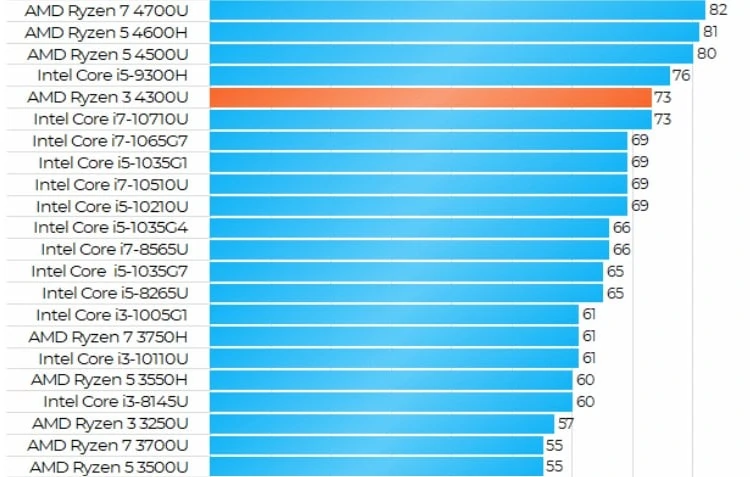
Comments